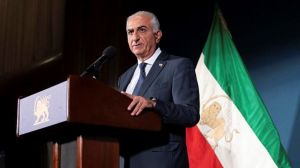Energy Equations
On first appearances, Prime Minister Manmohan Singh8217;s move to set up an Energy Coordination Committee to guide energy policy is likely ...

On first appearances, Prime Minister Manmohan Singh8217;s move to set up an Energy Coordination Committee to guide energy policy is likely to be brushed aside as 8220;yet another committee8221;. But going by the composition of the group 8212; and the timing of the annoucement 8212; a combination of political reality and economic neccessity has driven the decision.
Of course, the dictum in economics that everything hangs together also applies to the energy sector, which is why an overall institutional mechanism to tackle the issue of energy supplies is needed.
This committee 8212; comprising of the PM, FM, the petroleum, power, and coal ministers, the deputy chairman of the Planning Commission, along with chairman of the PM8217;s economic advisory council and the National Security Advisor 8212; would shape the country8217;s energy policy.
It goes without saying that meeting the energy requirements of the country, efficiently and adequately, needs a concerted and well-coordinated effort. However, sources indicate that, at present, individual ministries involved in energy are operating with different objectives and sometimes, at variance with one another.
What is good for one ministry and its public sector undertakings PSUs may not be necessarily so for other ministries. For instance, a decision to increase gas prices or even coal prices could add to the inflation rates and result in high retail power tariffs as well.
Therefore, this committee would first thrash out the pro and cons and ensure that differences between ministries are narrowed down to the bare minimum. Sources said that even decisions on pricing of petroleum products for instance, would be taken by this cabinet sub-committee.
Second, energy shortages in the country is going to be aggravated by another shortage, that of fuel. Be it coal or gas, user industries such as power have been voicing these concerns fairly openly. The shortage of gas was partly reflected in the long hours of load shedding in Maharashtra in May this year and soon could spread to other states such as Andhra Pradesh which has a number of gas-based power plants.
While this crisis is expected only next year, the issue of augmenting fuel supply cannot achieved overnight. But it is often found that shortages are caused by lack of planning.
For instance, last month, NTPC8217;s Talcher unit was reported to be shut on account of lack of coal. A month later, Coal India sources say that they have the coal but there are no rail wagons to carry the coal to the plant site. As as result of this, on the one hand the power plant is not working, while on the other Coal India is unable to maintain the mounting stocks of coal running close to one lakh tonnes.
It is here that this committee can play an important role. Sources said that the railways would be invited to meetings to resolve the issue of transportation.
Moroever, by involving the NSA, the committee goes beyond the domestic energy demand and supply equation. Issues such as from where and how much of gas/coal to be sourced from other countries have bilateral and multilateral implications. In that regard, this new committee has a much wider role to play than what meet the eye.
In fact, what the committee really needs to be is to set out a clear roadmap for an integrated energy policy. As things stand, this is severely lacking. Apart from getting individual ministries to act in unison, by getting the concerned ministries under one sub-cabinet committee, the Prime Minister now has to accord top priority to developing an integrated energy policy.
- 01
- 02
- 03
- 04
- 05































